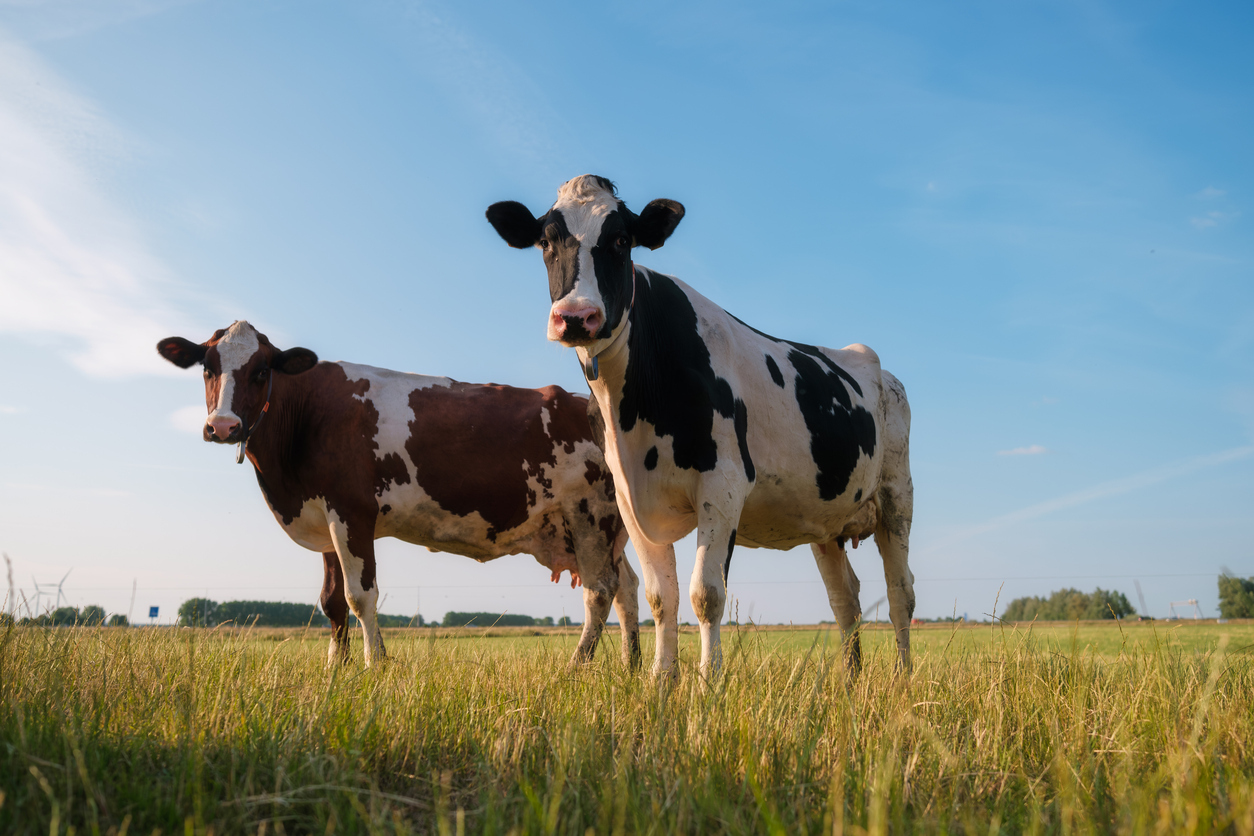While Q fever is often associated with dramatic clinical signs (massive abortions) in small ruminants, the manifestation of the disease in cattle can be more subtle, often contributing to reproductive disorders, including infertility in dairy cows.
This article summarises an oral presentation on the prevalence of Q fever in dairy herds showing clinical signs of reproductive disorders, which was given at ISWAVLD in Calgary, Canada, in June 2025.
Prefer to listen to this article? Click the play button below and enjoy our podcast!
Q Fever: a hidden cause of infertility in dairy cows and other clinical signs
Q fever in cattle can lead to a variety of reproductive issues, including abortions, stillbirths, premature deliveries, and weak offspring—a collection of symptoms known as the ASPW (Abortion, Stillbirth, Premature delivery, Weak offspring) complex. However, the disease can also cause other reproductive disorders such as metritis, endometritis, retained placenta, and infertility in dairy cows¹. These last symptoms, while less dramatic than abortion, can severely impact reproductive efficiency in dairy cattle and have significant economic and animal welfare implications.
Summary of the study²
The study aimed to compare the prevalence of Q fever infection between farms reporting ASPW complex with those with only other reproductive disorders.
PCR testing of bulk tank milk (BTM) using QTest, developed by Ceva and Qualyse, was used to detect Coxiella burnetii. QTest uses an FTA® card for sample collection and real-time PCR analysis³. The study analysed results from October 2020 to September 2024, categorizing herds into two groups: those with the ASPW complex and those with only other reproductive disorders. If a herd was concerned by both ASPW and another reproductive disorders, it was assigned to the ASPW group.
A total of 2014 samples were collected from various countries in Europe, North Africa and Canada. The overall prevalence of Q fever was found to be 42.7%. Interestingly, the prevalence rates were similar between herds with the ASPW complex and those with only other reproductive disorders (Figure 1):
- ASPW complex was reported in 62.6% of farms, with 44.0% testing positive for Coxiella burnetii.
- Other reproductive disorders were reported in 37.4% of farms, with 40.4% testing positive. The difference in prevalence between the two groups was not statistically significant (p=0.11).

Fig 1. Prevalence of Q fever depending on clinical signs reported
These results suggest that the presence of Coxiella burnetii in dairy cattle can be associated without difference with major reproductive disorders (abortions, premature delivery, stillbirth, weak born calves) or other reproductive disorders (metritis/endometritis, retained placenta, infertility in dairy cows). Testing for Coxiella burnetii should therefore be considered as part of fertility management in dairy herds with reproductive problems, even in the absence of abortion, as it represents one of the important bovine infertility causes.
Conclusion
Effective control of Q fever in dairy cattle requires a multifaceted approach. Given that there is no significant difference in prevalence between herds with ASPW and those with other reproductive disorders, it is essential to implement diagnostic and control measures in all herds exhibiting reproductive issues.
Key messages
- The prevalence of Q fever in dairy cow herds does not vary significantly (approximately 42%) regardless of reproductive disorders.
- Q fever should be tested in all herds with reproductive disorders, even in the absence of abortions.
References
- Gisbert, P., Garcia-Ispierto, I., Quintela, L. A., & Guatteo, R. (2024). Coxiella burnetii and reproductive disorders in cattle: a systematic review. Animals, 14(9), 1313.
- Gisbert P., Lemay A., Treilles M. Diagnosis of Q Fever in bulk tank milk in dairy cattle: Herd-level prevalence based on reported clinical signs. In Proceedings of ISWAVLD 2025, Calgary, Canada, 12-14 June 2025; p. 63
- Treilles, M., Charollais, P., Guatteo, R., Azevedo, C., Achard, D., Munoz-Bielsa, J., & Gisbert, P. (2021). QTest: A new way to easily sample, store, and ship samples to perform Q fever PCR analysis on bulk tank milk. JDS communications, 2(6), 409-414.
About the author
Philippe Gisbert (Ruminants Global Technical Manager)
Philippe Gisbert started his career in 1994 as a Vet practitioner working with companion and farm animals for over 9 years. He then became Health Affairs Manager for Group Agena (artificial insemination company). In 2008 he joined Eurofins – Laboratoire Coeur de France as Animal Health Unit Manager where he worked for 7 years until he joined Ceva France as Technical Manager Ruminants (Infectiology, Vaccines and Diagnostic). Since 2020 he is Global Technical Manager for Biologicals, Udder Health and Antiinflammatories. He is a member of SIMV diagnostic and anti-infective technical groups and has integrated different working groups of ANSES and UNCEIA related to epidemiology, antibiotic resistance and reproduction in livestock.
Explore author’s articles



Leave your comments here